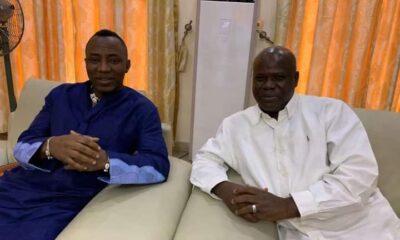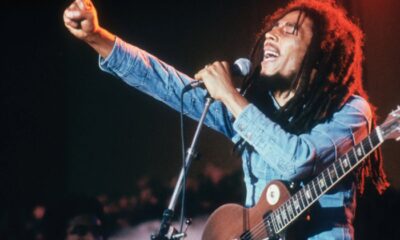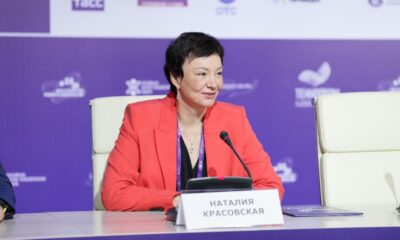National Issues
Labour Action: Who Is To Blame? -By Femi Oluwasanmi
In a society where policies are formulated for the purpose of alleviating the burdens of the people, the government will focus more on increasing the minimum wage instead of operating an advanced refugee settlement method that seems to placed the majority of workers at upper room where daily prayers are rendered for the rain of palliatives in order to augment their salaries and allowances.
It is a general knowledge that ‘when the elephants fight, the grass gets trampled.’ This seems to be the case of the recent scuffle between the government and the organized Labour in Nigeria. However, the question begging for an answer is who is to blame?
In retaliation to the assault on the president of the Nigerian Labour Congress (NLC) Joseph Ajero on 1st November, 2023 at Owerri, Imo State, the organized Labour on November 14, embarked on a nation wide strike demanding the arrest and persecution of the perpetrators of the attack before it was suspended due to the pleads from the eminent Nigerians including the National Security Adviser, Nuhu Ribadu almost 48 hours after its commencement.
Before the short lived strike, the labour union had on two occasions held warning strikes to call the attention of the government to the need to increase the minimum wage, provide palliatives that can mollify the hardship occasioned by the removal of fuel subsidy or reverse the fuel subsidy removal policy because it seems to have brought more pains to the workers than the hope it is acclaimed to contained putting into consideration the realities on ground in Nigeria.
This contributed to the factors that prompted the labour union leadership to embarked on a total protest in Owerri, Imo State after observing that the State government in the state has intensified the pains by the removal of some workers from the payment register under the disguise of war against ghost workers, failure to implement the payment of the 2019 minimum wage, among others.
At the time when N30, 000 was introduced as the minimum wage, the value of a dollar to Naira was N325, this has increased to N1000 making the value of the minimum wage to be hovering around $30 per month. This is the opposite of what is obtainable in most of the countries that the government pundits regularly cite whenever they want to justify the reasons Nigerians must see the current hardship as sacrifice for a better Nigeria.
In the United States for instance, the federal national minimum wage is US$7.25 per hour, and about US$1,218 per month. Though, the states are permitted to set their minimum wages above the federal floor level. Also, in April, the government in the United Kingdom increased the minimum wage and national living wage (NLW) for the NLW (23+), from £9.50 to £10.42, a 9.7% increment. While the Minimum wage for (21-22) was increased by 10.9 per cent, from £9.18 to £10.18.
Although, after series of strikes by the organized Labour, president Bola Ahmed Tinubu on October 1, promised to pay the government workers additional 35,000 for six months but the realities on ground in the country suggest that the workers deserve more than a temporary relief. The six months payment seems to be a temporary relief because it failed to addressed what happens after its expiration.
Also, the total exclusion of those working at the private sector in the scheme suggest that the government hope agenda is selective meanwhile both the private and public sectors are being affected by the removal of fuel subsidy.
In a society where policies are formulated for the purpose of alleviating the burdens of the people, the government will focus more on increasing the minimum wage instead of operating an advanced refugee settlement method that seems to placed the majority of workers at upper room where daily prayers are rendered for the rain of palliatives in order to augment their salaries and allowances.
The National Bureau Statistics (NBS) report portrays the current inflation rate in Nigeria as 26.72 % against the 11.40% in 2019 when the minimum wage was introduced. This has really reduced the purchasing strength of the people and further buttresses the claim that the workers in Nigeria are been shortchanged in payment.
Based on the report released by BudgiT of recent, about 15 states out of the 36 states of the federation are yet to implement the minimum wage of N30,000, since it was introduced in 2019. Though, the names of the states were not disclosed but it obvious that imo state where the NLC president, Comrade Ajero, was assaulted will certainly be among them.
Though, the state government and some people at the federal level have excoriated the assault but never back down on the claim that the Labour union leaders were trying use the protest as a pretext to campaign for the Labour party in the state. While this might appears to raised deep thoughts looking at the timing and the location of the protest but this wouldn’t have happened if the government had lived up to her responsibility of paying the minimum wage and doing things that will make the workers happy.
However, police brutality and hoodlum assault on peaceful protesters in Nigeria is not new, neither is it limited to Labour union. In fact, the EndSARS protest received global attention as a result of the rains of bullets rained on the peaceful protesters at lekki tollgate, Lagos, on 20th October, 2020. Though, no state will fold her arms in a situation of existential threat but the destruction that followed the protest showed that there is need to work on protest prevention mechanism than wanting for protest before acting.
Not less than N20 billion was loss during the short lived labour strike between 14th – 15th November. An amount that is more than the budgeted money for the commencement of the student loans slated for January 2024. The same was the case during the EndSARS protest where not less than N1 trillion was estimated to have lost. This is not talk of lives destroyed.
Must the government continues to wait for protest before raising up to her responsibility? The answer is NO. That is why the government needs to increase minimum wage, set up or resuscitate teams to monitor the implementation of the minimum wage at both the State and private institutions, arrest and prosecute those that assaulted the NLC president in Imo State instead of blaming the organized Labour for organizing protest to called the attention of the world to another variant of police/hoodlum collaboration brutality so that the issues of strike and protest can be reduced to the level where it will no longer pose threat to the welfare of the people and national development.
Femi Oluwasanmi,
Atakunmosa,
Osun State.
Continue Reading










